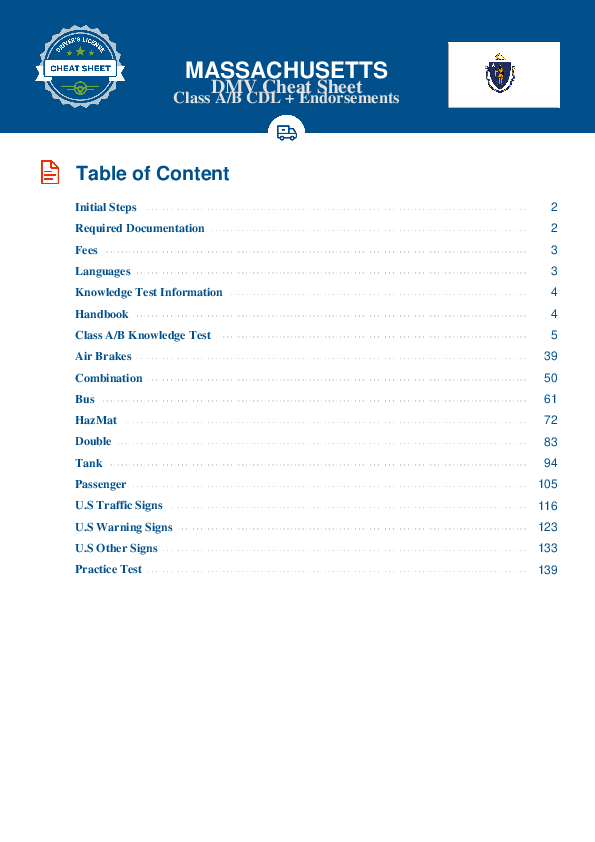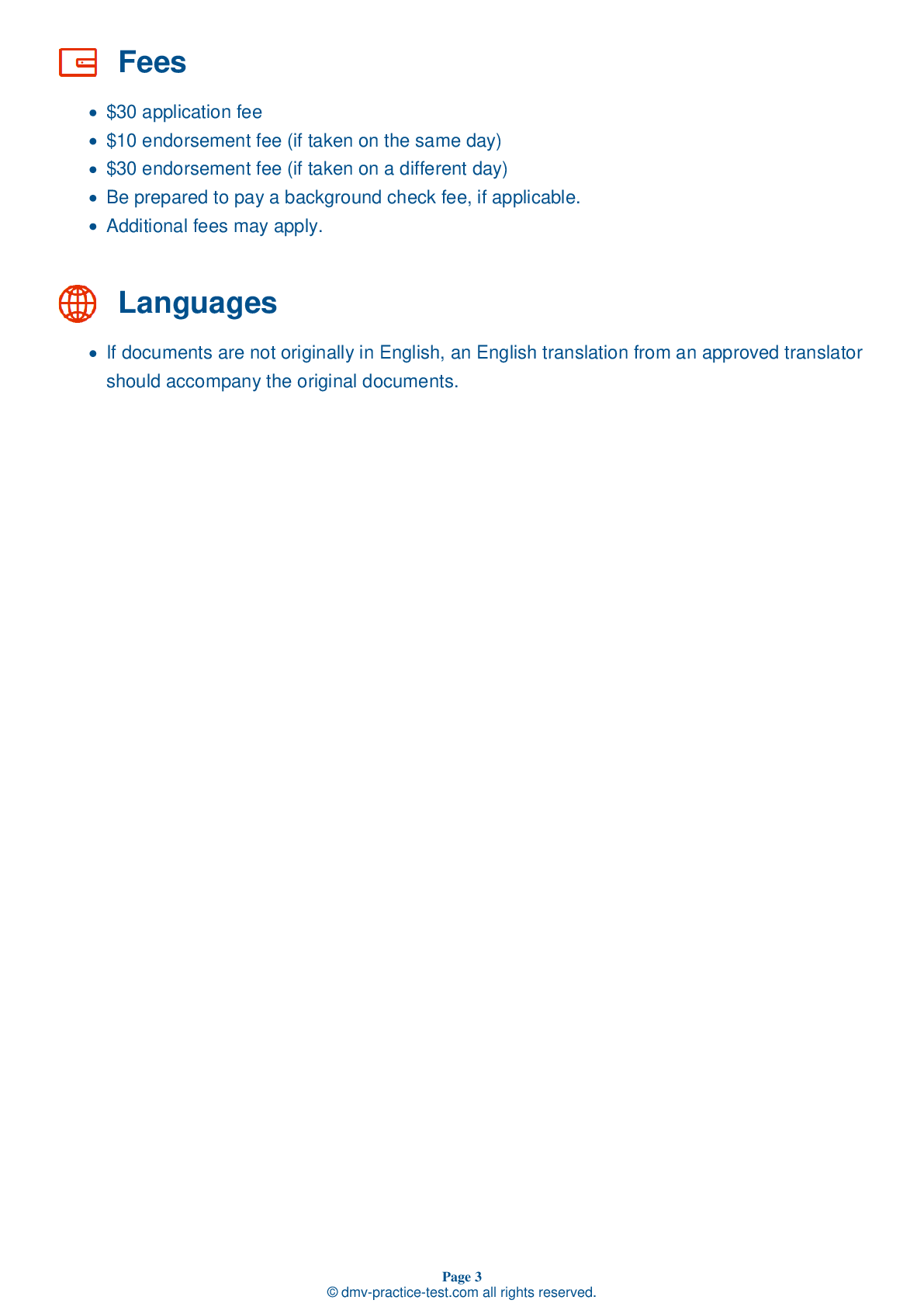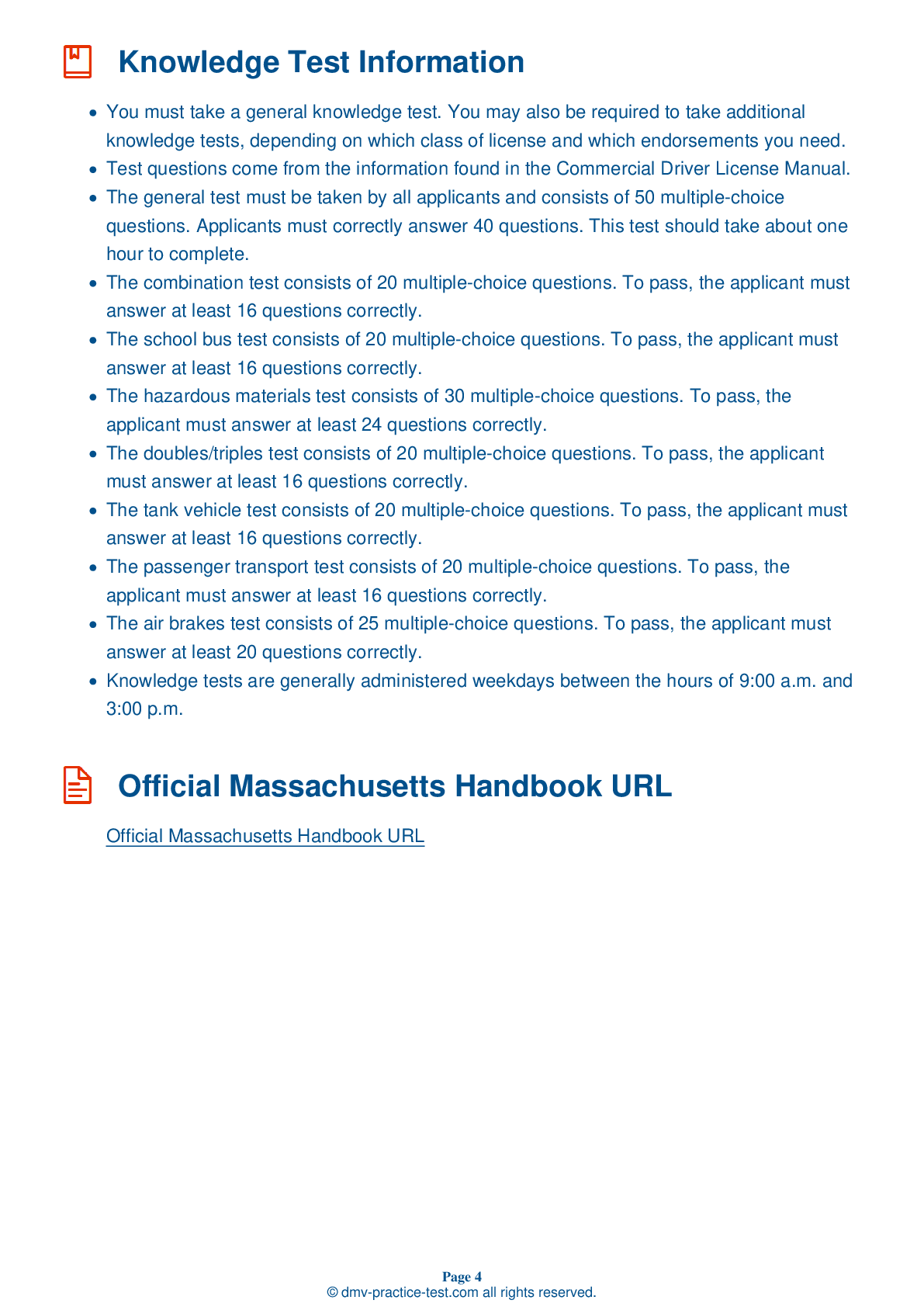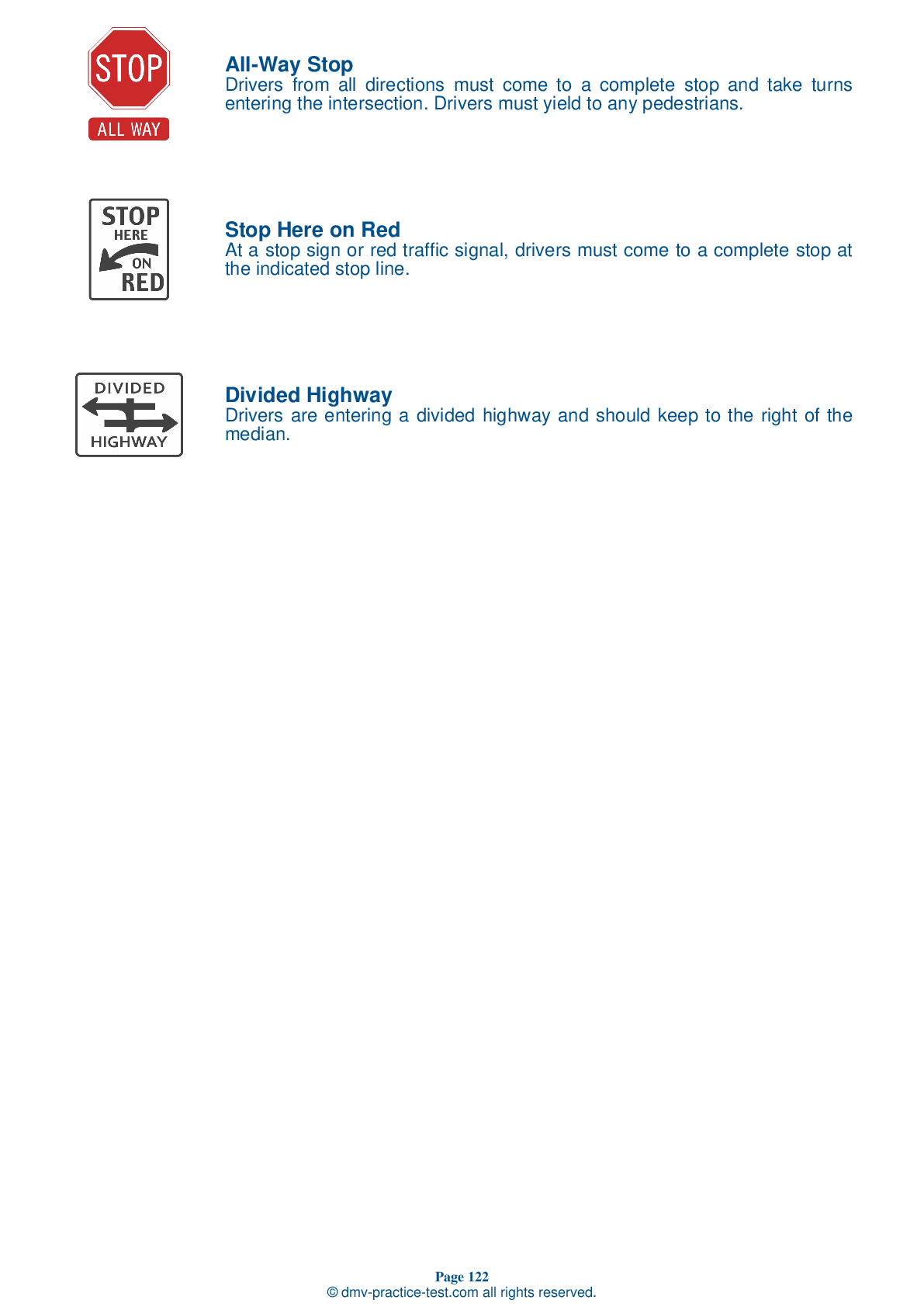Air Brakes Endorsement Test | Massachusetts 2026 #2 Page 2 of 4
Train for FREE online with our Massachusetts CDL air brake test. The official exam test consists of several obligatory parts, with all of them checking your knowledge of different blocks of road rules. If you need to obtain a MA Class A/Class B driver license in 2026, practice as much as possible. Free sample tests published on our website will help you check and improve your knowledge and boost your grades. Please bear in mind that the requirements for CDL may vary from state to state.
7 . Which type of brakes do most heavy-duty vehicles have?
For safety, most heavy-duty vehicles are equipped with dual air brake systems.
8 . Air tanks usually hold enough compressed air:
In an air braking system, the air storage tanks can usually hold enough compressed air for the brakes to be used several times.
9 . When you need to stop in an emergency, you should:
If you need to make an emergency stop, you can use either the controlled braking method or the stab braking method. It's important to brake in a way that keeps your vehicle traveling in a straight line while still allowing you to turn, if necessary.
10 . An air brake-equipped vehicle traveling at a speed of 55 mph under ideal driving conditions will need approximately ____ to come to a complete stop.
A vehicle's total stopping distance is made up of perception distance, reaction distance, brake lag distance, and braking distance. With all of these factors included, an air brake-equipped vehicle traveling at a speed of 55 mph under ideal driving conditions will need approximately 450 feet to come to a complete stop.
11 . All air tanks must include:
Air brake system tanks must contain drain valves. These valves are used to drain accumulated oil and water from the tanks and may be either manually or automatically operated.
12 . If the brake pads rub against the brake drums and create too much heat:
Brakes heat up with use. If they are overused and become too hot, expansion and chemical changes will make them less effective and eventually cause them to stop working altogether. This is known as "brake fade."
See the exact questions that will be on the 2026 Massachusetts DMV exam.
99.2% of people who use the cheat sheet pass the FIRST TIME
Lillian MCcranie explains how our CDL study guide was helpful in passing the exam and recommends it to everyone.
Cameron tells us how he purchased the CDL exam, and found it to be a useful tool which helped him pass the exam and find a job.



